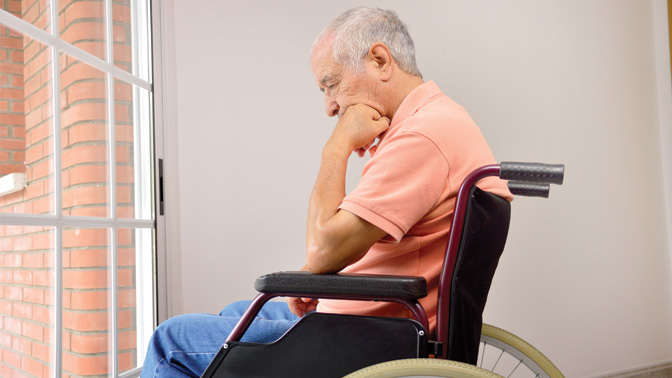
One step forward; two steps back. Survivors of stroke may feel like they hit an invisible wall.
Given that strokes can cause impairments in various aspects of daily life—including those in motor (such as walking and speech) and cognitive (such as thought processing and memory) activities—rehabilitation programs often focus on helping survivors recover these skills.
Two barriers that compound this already demanding process are fatigue and depression, experienced by at least one third of stroke survivors. Although fatigue and depression are common, little is known about their specific effects on rehabilitation outcomes.
To address this gap in knowledge, Dr. Walter Swardfager (TRI Affiliate Scientist) and his research team, including Dr. Bradley MacIntosh (Senior Scientist at Sunnybrook), surveyed 335 people who had experienced a stroke within the past six months. As part of the “Rehab Affiliates Study”—one of the largest of its kind ever conducted—research participants underwent a series of assessments to determine the following: the presence and severity of depressive symptoms; the presence and severity of fatigue; their level of mobility, including tests to evaluate balance and walking speed; and their level of cognitive ability, including tests to evaluate attention, thought processing and verbal memory.
The research team found that survivors with more fatigue had poorer motor performance and that survivors with more depressive symptoms had poorer cognitive performance, indicating that their recovery was not as successful. To dissect these relationships further, the team used structural equation modelling, a computational approach that tests how several measures are related to the outcomes. They found that participants with fatigue had poorer cognitive performance, but only when they also had depressive symptoms. Depression was associated with poorer motor performance too, but only when participants experienced fatigue.
“Fatigue can occur on its own, or it can be related to depression or to other comorbidities like diabetes and sleep apnea. It can be persistent, difficult to overcome and one of the most debilitating symptoms of a stroke. Despite this, we know very little about what causes it,” explains Dr. Swardfager. "Detection of these features would enable earlier interventions to remove tangible barriers to successful rehabilitation.”
The Rehab Affiliates Study was supported by the Heart and Stroke Foundation Canadian Partnership for Stroke Recovery.
MacIntosh BJ, Edwards JD, Kang M, Cogo-Moreira H, Chen JL, Mochizuki G, Herrmann N, Swardfager W. Post-stroke fatigue and depressive symptoms are differentially related to mobility and cognitive performance. Front Aging Neurosci. 2017 Oct 31. doi: 10.3389/fnagi.2017.00343.




